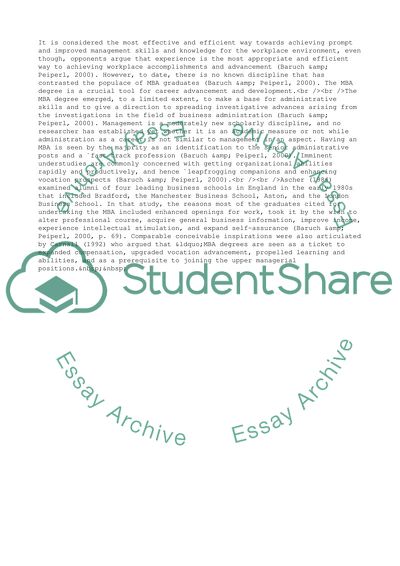Cite this document
(Impact of MBA on Career Advancement Literature review Example | Topics and Well Written Essays - 1750 words - 6, n.d.)
Impact of MBA on Career Advancement Literature review Example | Topics and Well Written Essays - 1750 words - 6. https://studentshare.org/business/1863044-research-methods
Impact of MBA on Career Advancement Literature review Example | Topics and Well Written Essays - 1750 words - 6. https://studentshare.org/business/1863044-research-methods
(Impact of MBA on Career Advancement Literature Review Example | Topics and Well Written Essays - 1750 Words - 6)
Impact of MBA on Career Advancement Literature Review Example | Topics and Well Written Essays - 1750 Words - 6. https://studentshare.org/business/1863044-research-methods.
Impact of MBA on Career Advancement Literature Review Example | Topics and Well Written Essays - 1750 Words - 6. https://studentshare.org/business/1863044-research-methods.
“Impact of MBA on Career Advancement Literature Review Example | Topics and Well Written Essays - 1750 Words - 6”. https://studentshare.org/business/1863044-research-methods.


